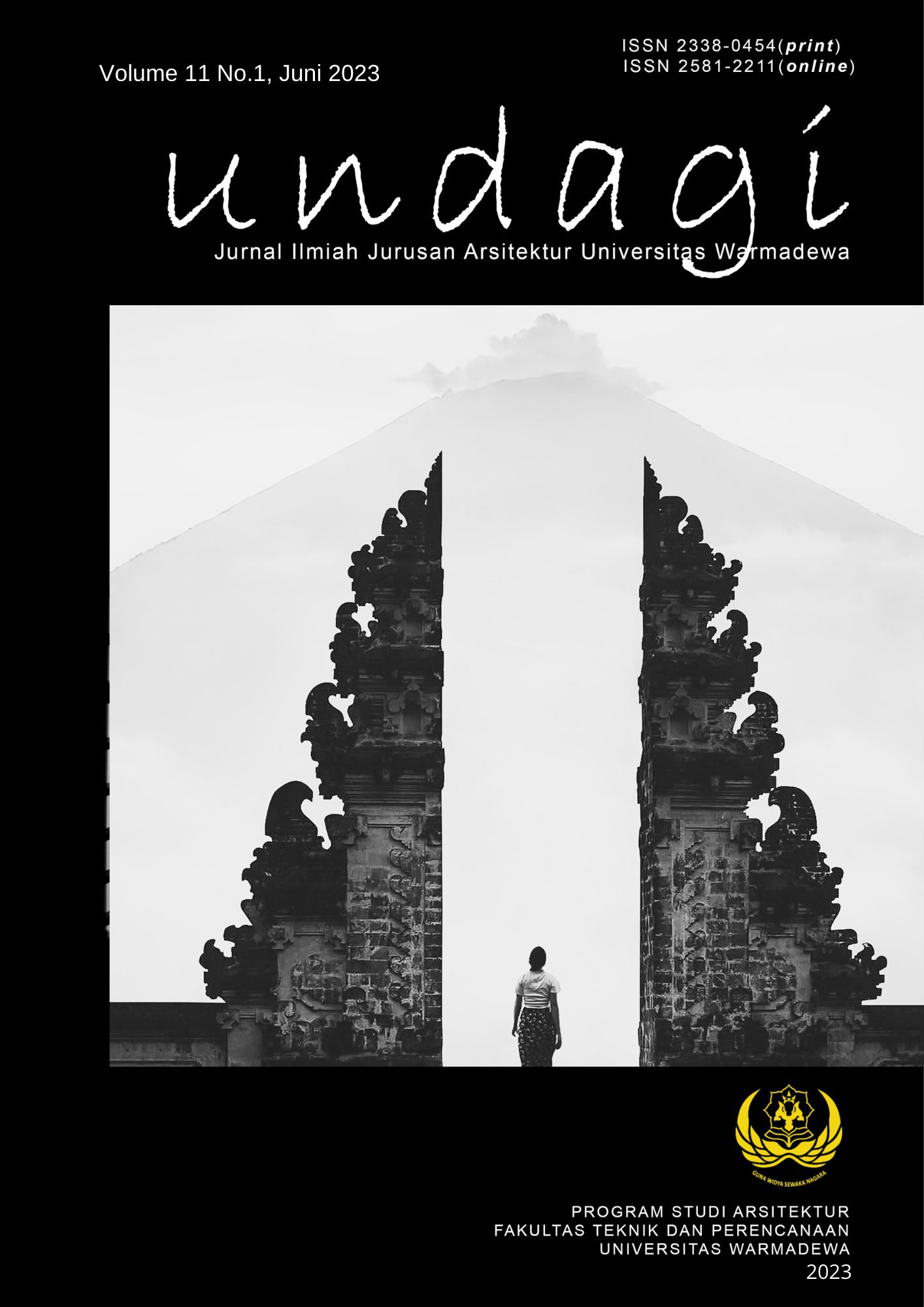Pendekatan Critical Regionalism pada Wisata Edukasi Tambak Garam di Amed, Karangasem
Bahasa Indonesia
Abstract
The decrease in the area of salt pond farming land in the Province of Bali as a result of greater use of coastal land as a support for the tourism sector resulted in a drop in the amount of salt produced in the Province of Bali. This issue has had an influence, resulting in the emergence of other issues such as decreased use of traditional food technology, decreased incomes and farming professions, and inadequate measures to maintain cultural assets associated with the ancient salt production method. Salt Pond Edutourism began as a reaction to existing challenges through its functions such as production and development, educational functions, and distribution. The exact location was chosen as Amed Hamlet, Purwakerti Village, Kec. Abang, Karangasem Regency since the area has a Geographical Indication certificate showing that salt goods originate from Amed with different salt properties than other salts. Following the stages of literature study, precedent study, observation by obtaining information from books, journals, newspapers, online media searches, and surveying. So that the results are obtained in the form of room and user specifications, as well as activities to be carried out in this area by implementing the concept of The Sustainability of Community Empowerment and applying the Critical Regionalism theme, which helps the surrounding area to have a strong identity, which is expected to influence the position of products in the market to improve the economy local community.
References
Bramawanto ABSTRAK, R. (2017). DESAIN DAN LAYOUT TAMBAK GARAM SEMI INTENSIF SKALA KECIL DI LAHAN TERBATAS DESIGN AND LAYOUT OF SMALL-SCALE SEMI-INTENSIVE SALT PANS AT THE SMALL AREA (Vol. 13, Issue 3). http://roren.kkp.go.id
Rochwulaningsih, Y., Utama, M. P., & Sulistiyono, S. T. (2019). TEKNOLOGI GARAM PALUNG SEBAGAI WARISAN SEJARAH MASYARAKAT PESISIR BALI. In Jurnal Sejarah Citra Lekha (Vol. 4, Issue 1).
Wandila, P. A., Hariyanto, E., Raya, J., Km, P., & Timur, P. J. (n.d.). Al-Khidmah Pemberdayaan Edu Wisata Garam Selama Masa Pandemi Covid-19 di Desa Bunder Kecamatan Pademawu Kabupaten Pamekasan.
Wihardyanto, D. (n.d.). PERKEMBANGAN KONSEP REGIONALISME KRITIS KENNETH FRAMPTON (1985-2005). www.flickr.com
Copyright (c) 2023 Undagi : Jurnal Ilmiah Jurusan Arsitektur Universitas Warmadewa

This work is licensed under a Creative Commons Attribution-ShareAlike 4.0 International License.
The copyright will be filled by the author if the manuscript has been received and ready to be published and the author will get a letter of acceptance and evaluation of the manuscript from the reviewer as proof of the manuscript has passed the peer-reviewer Abstract viewed = 242 times
Abstract viewed = 242 times
 PDF downloaded = 276 times
PDF downloaded = 276 times












